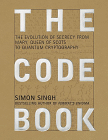Science, Fiction, and points in between
§ CNN
Sir Arthur C. Clarke predicts significant events of the 21st century.
 Free Inquiry Fall 1999
Free Inquiry Fall 1999
A long ''Humanist Manifesto 2000'' is endorsed by Sir Arthur C. Clarke, Richard Dawkins, Edward O. Wilson, Spanish Nobel Laureate Jose Saramago, and dozens of others. Also in the issue: an interview by Wendy Kaminer, author of Sleeping with Extra-Terrestrials (Pantheon); and a science fiction story, ''Meanwhile, on the Planet Vatican'', by Tom Flynn. [None of these online, at least not yet.] And here's an October 4th Boston Globe article about Kaminer.
§ New York Times Oct. 11
Author Saul Bellow wonders if literature is obsolete at a time when going to movies is what everyone does.
§ Salon Oct. 11
New York-area SF fan and freelance writer Vicki Rosenzweig has some suggestions for the Kansas Board of Education, extending its idea that theories about past events are untenable, and should therefore not be taught in schools, unless someone was there to witness them. So maybe Paul Bunyan did carve the Grand Canyon, who's to say?
 § Salon Oct. 6
§ Salon Oct. 6
A review of Simon Singh's The Code Book (Doubleday) --
Singh, the British science journalist who wrote the popular
"Fermat's Enigma," has a gift for explaining the nuts and bolts of
even the most intricate cryptographic systems; it is nothing short
of astonishing to watch the Enigma cipher crumble before your
eyes through a series of logical deductions that a lay reader can
easily follow. At the end of the book, in a sort of promotional-
gimmick-cum-final-exam, Singh offers a $15,000 prize to the first
reader who can crack a series of coded messages -- one in each
of the increasingly sophisticated encryption schemes he details in
the book. (It's a measure of just how clear his explanations are
that the challenge seems well within the realm of possibility.)
§ New York Review of Books Oct. 21
Physicist Steven Weinberg wonders if we live in a designer universe, in an article based
on a talk given in April 1999 at the Conference on Cosmic Design of the American Association for the Advancement of Science.
 § The Chronicle of Higher Education Oct. 8
§ The Chronicle of Higher Education Oct. 8
An essay [link via Arts & Letters Daily]
by John Horgan, author of The End of Science and the new The Undiscovered Mind, explains why he's so negative about prospects for scientific understanding, especially of human consciousness.
[Karl] Popper called his philosophy critical rationalism. I prefer the term "hopeful skepticism." Too little skepticism leaves us prey to peddlers of scientific snake oil. Too much skepticism can lead to a radical postmodernism that denies the possibility of achieving not only complete knowledge of our selves, but any knowledge at all. But just the right amount of skepticism -- mixed with just the right amount of hope -- can protect us from our own lust for answers while keeping us open-minded enough to recognize genuine truth if and when it arrives. If The Undiscovered Mind succeeds at all, it will persuade readers to view mind-science with hopeful skepticism. That is one upside.
 Meanwhile, the Oct. 18th Time magazine has a 2-page Science article about Antonio Damasio's attempt to explain consciousness, in his recent The Feeling of What Happens (Harcourt Brace).
Meanwhile, the Oct. 18th Time magazine has a 2-page Science article about Antonio Damasio's attempt to explain consciousness, in his recent The Feeling of What Happens (Harcourt Brace).
§ Slate Sept. 15
Economist Steven E. Landsburg offers a counter-intuitive analysis of why you can't believe everything you read -- especially something published in a prestigious journal. Why? Because editors like to publish theories that are unusual or surprising, and those are just the ones most likely to be wrong.
 § Salon Sept. 16
§ Salon Sept. 16
A profile of Donald Knuth, the philosopher king of computer programmers, and the author of the multi-volume The Art of Computer Programming. The third volume was published in 1973 and he's been working on Volume 4 ever since (could this be a record of some sort? Hmm) though in the meantime he's written other books, including a novel. He's a proponent of elegance in programming and would award a Pulitzer Prize for best-written program.
(Wed 13 Oct 1999)






